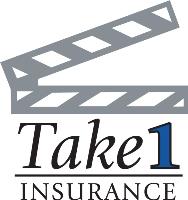
This article is sponsored by Take1 Insurance.
“Self-insurance” is a loaded term. It suggests “self-reliance” to some and might seem synonymous with “self-assured” to others. But when it comes to event liability and special event insurance, what it really means is “risk.” How we look at risk assessment is often as emotional as it might be rational. It’s just human nature to believe that every day that nothing bad happens adds to a certain sense of confidence that nothing bad is ever going to happen.
So as business moves forward over time, more than a few event producers might feel comfortable minimizing the amount of coverage they’ll take by increasing their deductibles for production elements, from screens to scenery, and a few might even feel confident enough to self- insure to a greater extent for personal liability. As a commercial-insurance professional, I would tell them, don’t do it. It’s virtually never really worth it to self-insure, and that’s not likely to change anytime soon.
There are good economic reasons to avoid self-insurance, and they’re not just the obvious ones about what an event producer stands to lose in the event of a disaster. In addition to that, there is the fact that we’re in what we call a soft cycle in insurance, one in which the number of insurers in the market is very high, which increases competition and puts some downward pressure on premiums that insureds pay.
In fact, we’re in what many consider to be a protracted soft cycle, an insurance-buyer’s market, if you will, thanks to enhanced post-9/11 security measures and improved safety procedures and protocols in the live-event production market since the catastrophes at outdoor concerts in 2011 and 2012. All of that has combined to reduce risk, which reduces costs, which should encourage greater use of insurance coverage. In other words, take advantage of a market that’s tilted to your benefit.
Unfortunately, that’s not always how people think. They might look at how much safer live events have become in the last few years and think that risk has been tamed. However, they’d be overlooking the fact it’s become a safer industry exactly because of the response to earlier disasters, as insurance companies helped the event-production industry confront, evaluate, and reduce inherent risk. Right now is the best time to shop for live event liability insurance, but it’s always the worst time to think you can do without it.
Now that’s not to say that there aren’t some scenarios in which some limited self-insurance wouldn’t be fiscally prudent. For instance, a sound/video/lighting vendor might have $100,000 worth of specialized cables they’d need to deploy, putting them at risk in the event of an adverse incident, such as a bad thunderstorm. However, many of those cables have a very specific lifespan and will be replaced due to routine wear and tear anyway. Since the vendor will have to go out of pocket for them at some point, those would be the sort of property that makes sense to self-insure.
But there are rather few other examples of those sorts of situations. Instead of looking at a good run of uneventful events, so to speak, and using them as the rationale for saying, “What do I need all that insurance for?” it’s more accurate and far wiser to understand that that uneventful stretch of time was the result of industry-wide better planning and improved best practices. And to realize that what underpinned that successful stretch of business was actually a solid foundation of event liability and special event insurance, provided by insurance companies that know and understand the risks that are being taken so event producers can do what they do best: put on a great show!
Interested in learning more about event-liability and special-event insurance?Click here to contact the Take1 team.

